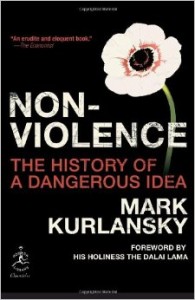The quote that forms the title of this post comes from Otto T. Mallery (1881-1956), perhaps best known for his book Economic Union and Durable Peace. It came to my attention recently while listening to Blueprint for Armageddon Part 1 on Dan Carlin’s most excellent Hardcore History podcast.
As the quote indicates, countries that are economically interdependent have too much to lose by going to war against their trading partners. Therefore, a globalized economy should be an effective way to reduce wars. However, as Carlin points out, the era leading up to World War 1 was a period of unprecedented globalism and wealth. How, then, could the richest countries in the world find themselves embroiled in the most brutal war the world had ever seen?
We see a similar argument echoed much more recently by Thomas Friedman in The Lexus and the Olive Tree. He calls it the “Golden Arches Theory of Conflict Prevention.”
No two countries that both had McDonald’s had fought a war against each other since each got its McDonald’s.
The appearance of McDonald’s is a signal that a country has developed a middle class that is wealthy enough to support a chain of fast food restaurants. And with their bellies stuffed full of Big Macs and Happy Meals, who would want to mess that up by going to war–particularly against anyone with a vested interest in their fast food chain? They have too much to lose.
Ironically, shortly after Friedman’s book was published, NATO warplanes bombed Yugoslavia, and angry protestors destroyed all of the McDonald’s restaurants in that city. So much for the theory–or so it appeared.
Friedman responded by saying what happened in Yugoslavia is merely the exception that proves the rule. The restaurants have since been rebuilt and–surprise!–there hasn’t been a war there ever since. You’ll have to excuse me, but that sounds a bit like the following joke:
Why are you waving that chicken around over your head?
To keep the elephants away.
Does it work?
You don’t see any elephants around here, do you?
The way I see it, countries go to war out of self-interest, and they avoid war for the same reason. The fact that the object of their aggression may be part of their supply chain makes little difference to what amounts to a simple cost/benefit scenario on the part of the aggressor. For example, the ancient Vikings were happy to trade with other countries, until they realized they could simply take the goods instead. Think of it as a form of vertical integration–with guns. Organized crime organizations make similar moves all the time. Russia has exhibited similar behavior recently in Ukraine.
That said, I do think economic interdependence has certainly helped to reduce the likelihood of war. It’s just a mistake to think of it as a cure-all. Think of the dampening effect Europe’s dependence on natural gas has had on the Ukraine situation, for instance. It didn’t prevent Russia’s aggression, but it certainly stopped it from exploding into a much broader conflict. As anyone who has taken grade 5 history knows, when trade happens, we exchange far more than goods. We also exchange values, ideas, technological innovations and so on. Most importantly, we come to see our neighbors as human beings. And the more human the other becomes, the harder it is for us to considering killing them. Incidentally, that’s why I think multi-national corporations tend to get a worse rap than they deserve. Sure, there are some bad actors out there, but I think they prevent far more wars than they cause. Furthermore, their economic involvement in the far corners of the globe help to bring all sorts of previously unknown injustices to light.
Trade or no trade, armies will still cross borders, but they cross them far less frequently than they did in the past, the conflicts don’t last nearly as long, and the aggressors are unilaterally condemned by the global community. Compared to how such actions were viewed in the past, when kings were literally expected to go to war against their neighbors in the spring, I’d call that progress.
I’m not saying international trade is solely responsible for this reduction in aggression, but it is certainly preferential to the economic and cultural isolation practiced by nations like South Korea and much of the Arab world–and the outside world’s treatment of these countries as social pariahs. If we engage our enemies economically, I’m confident we will have far less reason–and far less desire–to engage them militarily, and vice versa.











